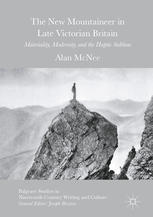

Most ebook files are in PDF format, so you can easily read them using various software such as Foxit Reader or directly on the Google Chrome browser.
Some ebook files are released by publishers in other formats such as .awz, .mobi, .epub, .fb2, etc. You may need to install specific software to read these formats on mobile/PC, such as Calibre.
Please read the tutorial at this link. https://ebooknice.com/page/post?id=faq
We offer FREE conversion to the popular formats you request; however, this may take some time. Therefore, right after payment, please email us, and we will try to provide the service as quickly as possible.
For some exceptional file formats or broken links (if any), please refrain from opening any disputes. Instead, email us first, and we will try to assist within a maximum of 6 hours.
EbookNice Team

Status:
Available5.0
14 reviewsThis book is about the rise of a new ethos in British mountaineering during the late nineteenth century. It traces how British attitudes to mountains were transformed by developments both within the new sport of mountaineering and in the wider fin-de-siècle culture. The emergence of the new genre of mountaineering literature, which helped to create a self-conscious community of climbers with broadly shared values, coincided with a range of cultural and scientific trends that also influenced the direction of mountaineering. The author discusses the growing preoccupation with the physical basis of aesthetic sensations, and with physicality and materiality in general; the new interest in the physiology of effort and fatigue; and the characteristically Victorian drive to enumerate, codify, and classify. Examining a wide range of texts, from memoirs and climbing club journals to hotel visitors’ books, he argues that the figure known as the ‘New Mountaineer’ was seen to embody a distinctly modern approach to mountain climbing and mountain aesthetics.